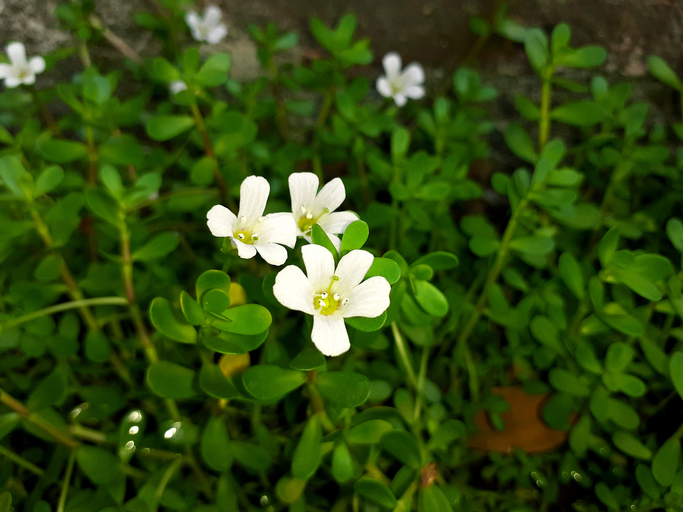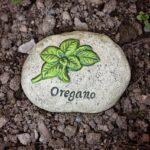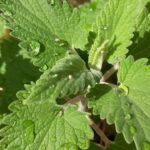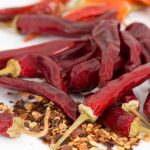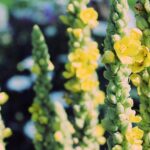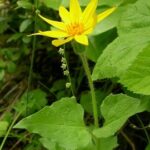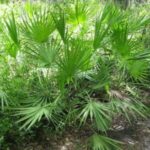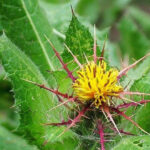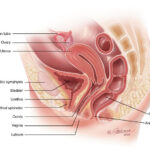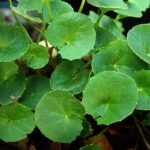Bacopa, also known as Brahmi and Water Hyssop, has a long history of use in the indigenous medical systems of India and Sri Lanka. These ancient modalities, called Ayurveda and Siddha, used Bacopa for 1000’s of years as a powerful brain tonic and rejuvenation agent called a rasāyana (more about this below).
For more information about the name Brahmi and Brahmi herbs see Gotu Kola, Elixir of Life.
Bacopa – Bacopa monnieri
Family- Plantaginaceae (Plantain) family
I first became enamored with Bacopa some years ago. At the time I was working with several young people who had been diagnosed with ADHD, (Attention-deficit/hyperactivity disorder). ADHD is a multi-level chemical and lifestyle imbalance. This herb wasn’t the only answer for these kids and their families, but it helped improve concentration, focus, impulse control, and peace of mind. With the mind and body more directable, other changes became do-able.
Later, I found this herb effective, combined with skullcap and Mexican poppy, as an aid for helping people release dependency on additive substances. When chemicals and medications we’re used to are denied, the mind and body can become agitated. Withdrawal can become intense making clear thinking is almost impossible. At these times, emotions and mood may swing drastically. Bacopa can help. Again, it is not the only answer. Withdrawal is a process. Our herbal allies are friends to lean on and to help make a difficult journey a little easier to bear. They cannot do the work for us.
Recently, after a head injury, I began taking Bacopa to sooth neurological symptoms and help repair damage to my brain and nervous system. In this case, I mixed it with Gotu Kola and Avena or milky oats.
I think it has helped.
About Bacopa
Description
This is a small, creeping, plant that loves the water. It has many branching stems with small, succulent, oblong, leaves. The flowers are small, and white to light purple. Bacopa is native to India and Sri Lanka, where it thrives in tropical and subtropical wetlands, shallow pools, and tidal zones. The whole plant grows to about 6 inches in height.
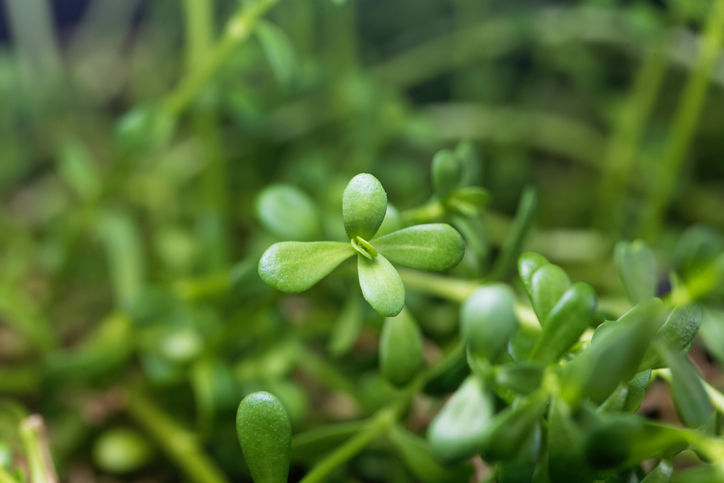
Bacopa is easily grown as an annual or houseplant in most areas. Many grow it indoors in containers and aquariums.
Medicinal properties
Adaptogen, rasāyana, nootropic, nervine, mild anti-convulsant, anti-epileptic, sedative, anti-spasmodic, anti-depressant for “cloudy thinking,” and antioxidant.
Energetics – Bitter, sweet, light, cooling
Bacopa’s Medicinal uses
Three of Bacopa’s medicinal properties stand out to inform most, if not all, of its applications and uses.
It’s an Adaptogen
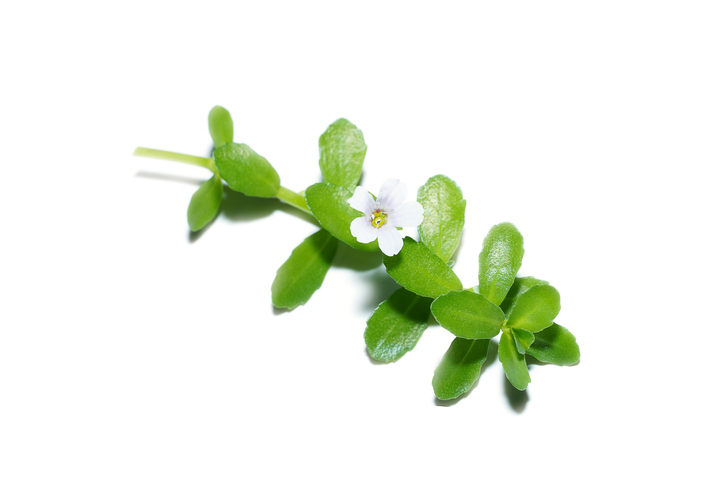
Adaptogen herbs have a balancing or normalizing effect on bodily function. Helping by enhancing the general resistance of all body systems in a broad acting, nonspecific manner. They are smart herbs, working to bring the system in the direction of balance, regardless of the cause of the problem. Adaptogens support the autonomic nervous system by helping regulate the chemical, physiological, mental, and emotional progression of the stress response, thus, promoting physical and emotional wellbeing, preventing, and treating disease. As a bonus, these are safe herbs, having little to no side effects or contraindications.
Rasayana
An herbal description taken from the Ayurvedic tradition, a rasāyana (pronounced ra-saa-ya-na) is an herb and/or lifestyle practice (like exercise, rest, and diet) that prolongs life and improves overall health. These herbs improve the nutritional state of the body and support the foundation of healthy cells and tissues. Further, rasāyanas rejuvenate the mind and body, reducing stress and enhance mental/emotional balance.
Nootropic
Nootropic herbs (pronounced no-o-trop-ik) act on the mind. As “smart herbs” or cerebral stimulants, they help improve memory, slow down or prevent age-related cognitive decline, modulate mood, and enhance emotional and mental wellbeing.
How stress effects human health.
Stress, and the stress response, play a huge role in many modern health illnesses. When our stress response is piqued, chemicals and hormones including adrenaline and cortisol are released. The mind and body move into overdrive. Circulation and nerve impulses are rerouted into the extremities, the heart begins to pump faster, and our liver and spleen release more sugars into the bloodstream. This is all good because we can think clearer, have more energy, and are stronger.
The problem happens when we never return to normal relaxed functioning. Our new normal becomes a state of low-grade chronic stress. We stay hyped up, always ready for something to happen. If this continues over a long-time, health issues develop. Some complications related to low-grade-chronic-stress include blood sugar imbalances, insomnia, difficult digestion, immune problems, auto immune diseases, chronic fatigue, cancer and more.
Bacopa can help.
Bacopa has been shown to modulate the stress hormones released by the brain, producing a stabilizing and rejuvenating effect. It increases GABA levels. Gamma-aminobutyric acid is an amino acid that works to reduce nerve excitability while improving nerve impulse transmission in the brain. The result is a calming effect on all tissues, the strongest on neural and nervous tissues.
Bacopa aids recovery from stress, exhaustion, and debility (especially mental debility). It mildly stimulates the thyroid, supports healthy cortisol levels, and promotes healthy inflammatory response in the brain and central nervous system.
The herb also has some free-radical scavenging actions that work to eliminate various toxins and heavy metals from the body, helping to prevent or reduce the buildup of aluminum toxicity that is implicated in dementia and Alzheimer’s disease.
Bacopa has many uses involving the brain, brain tissue and brain functioning.
Modern studies verify Bacopa’s traditional use as a brain tonic. The studies show that Bacopa protects the hippocampus. Two small, curved brain formations just above each ear and about an inch interior. Hippocampi are an important part of the limbic system and are involved in the creation and categorization of new memories, our ability to learn, emotions, and the recall of emotional memories.
The use of Bacopa can:
- Increases the ability to concentrate, improves memory, increases our ability to learn and helps us retain and access information
- Slows down “mental chatter”
- Promotes healthy sleep
- Relieve depression and anxiety
- Bacopa has been shown in studies to repair damaged neurons and improve brain function, making it especially useful in recovery from a brain injury and stroke. This includes the lingering headache and pressure after head trauma.
- Helps heal sensory impairment due to trauma or illness
- Useful for treating cognitive disorders including epilepsy (to reduce seizure activity), ADHD in children and adults with excessive compulsive disorder
- Slows down aging and age-related cognitive decline
- Slows the progression of Alzheimer’s disease and dementia while improving quality of life by relieving mental confusion, nervous exhaustion, enhancing mood and improving memory.
Other long-established applications for Bacopa include its use as a cardiac tonic, and as a digestive aide in cases of IBS, gastric ulcers and more. It is used to ease neuropathy and restless leg syndrome, to treat mental illness and to improve respiratory function in cases of bronchial constriction.
Preparations and Dosage
The whole plant is harvested, preferably when in bloom. It can then be dried or made into fresh plant preparations.
It is best to buy organic if purchasing from a commercial source. Bacopa is known to absorb pollutants in the water, especially lead and nitrates. Interesting that it helps clear these same pollutants from our system.
This amazing combinations means that Bacopa effects the entire system including all its tissues, organs, and nerves, but not in a direct way. Rather, it supports the foundation of life and how life moves through us, with a special affinity for the brain and nervous system.
Dosage Suggestions
- Tincture 1:5 dried herb with 40% alcohol or 1:2 fresh. The suggested dose varies depending on the practitioner. Most suggest 30 to 50 drops 4x per day (15 to 25 drops for children over 1 year). I find most people, adults, and children, do well with a much smaller dose of 5 to 10 drops 2 or 3 times per day.
- Tea – Steep 1 tsp dried herb in 8 oz hot water. Let steep 40 minutes, strain and take 4 oz 3x per day.
- Standardized extract to 50% bacosides A and B. 200-400 mg daily in divided doses for adult. 100-200 for children 1 year and older.
- Syrup made from dried plant – to 12 grams daily in divided doses to 3x per day.
Contra-indications and Interactions
Pregnancy and Breast feeding – Bacopa is considered safe during pregnancy for a short duration (2 to 4 weeks). It is also considered safe when breast feeding, but only in low dosage when the child is 1 year or older.
Drug interactions – Bacopa was shown to reduce the hepatoxicity and neurotoxicity of morphine. It also helps relieve some of the “brain fog” caused by the seizure medicine Dilantin.
Other Contra-indications – Avoid when the heart rate is low. Bacopa may not be tolerated by those with sensitive stomach ulcers where it is suggested to be taken with ghee. Some people experience dizziness from single herb capsules as is found in many health foods stores.
Read More
Suggested Products
References
https://organicindiausa.com/blog/bacopa-an-ayurvedic-nootropic/
https://www.easyayurveda.com/2014/07/20/brahmi-benefits-dose-side-effects-research/
https://www.verywellmind.com/what-is-the-hippocampus-2795231
Winston, David, RH (AGH) and Maimes; Adaptogens, Herbs for Strength, Stamina, and Stress Relief; Healing Arts Press, Rochester VT, 2007
Yance, Donald; Adaptogens in Medical Herbalism; Healing Arts Press, Rochester VT, 2013
Roundtree, Robert MD; Herbs and Nutrients for Modulating Mood Disorders; Medicines from the Earth, 2004
Miller, Jason DAM La; Neurological and Cognitive Decline, Integrating Traditional Solutions with the Latest Research on Brain Function; Southwest Conference on Botanical Medicine, 2019
Winston, David RH (AGH); Differential Treatment of Depression and Anxiety with Botanical and Nutritional Medicines; Southwest Conference on Botanical Medicine, 2019
Profrock, Kenneth MD; Innovative approaches to Neurodevelopmental Conditions in Children; Southwest Conference on Botanical Medicine, 2011
Disclaimer
The statements and ideas presented here are not intended to diagnose, treat, cure, or prevent any disease or condition. They have not been evaluated by the FDA. All ideas presented are for the sole purpose of education. To help you take control of your own health. If you have a health concern or condition, consult a physician. We suggest that you always consult a medical doctor before modifying your diet, using any new product, drug, supplement, or doing any new exercises.
These statements and products have not been evaluated by the FDA. They are not intended to diagnose, treat, cure, or prevent any disease or condition. If you have a health concern or condition, consult a physician. Always consult a medical doctor before modifying your diet, using any new product, drug, supplement, or doing any new exercises.
Herbs taken for health purposes should be treated with the same care as medicine. Herbal remedies are no substitute for a healthy diet and lifestyle. If you are serious about good health, you’ll want to combine diet, exercise, herbals, a good relationship with your doctor and a generally healthy lifestyle. No one of these will do it alone.
This information is designed to be used as part of a complete health plan. No products are intended to replace your doctor’s care, or to supersede any of his/her advice or prescriptions.

